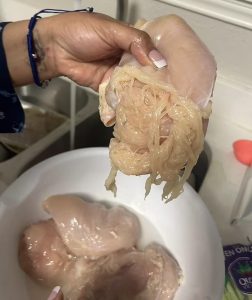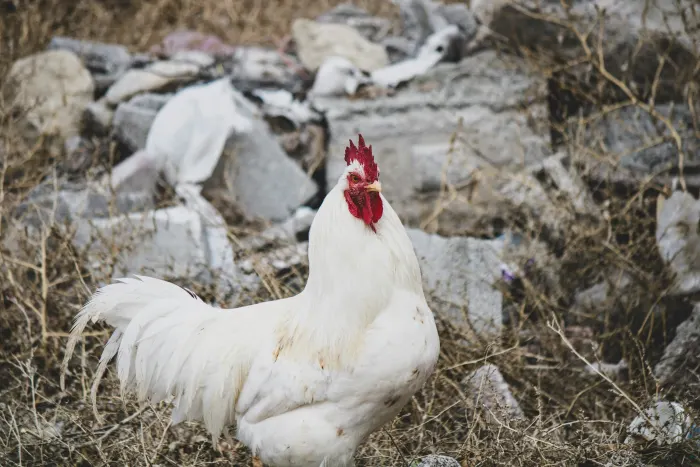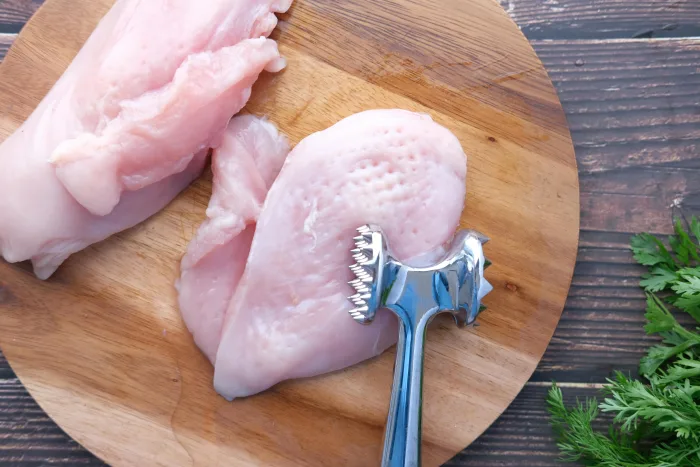A Texas mom’s recent viral post has ignited a firestorm of debate and disgust, shedding light on the unsettling realities of modern poultry farming. Alesia Cooper, while preparing dinner, encountered a horrifying sight: her chicken breasts had transformed into something resembling stringy, grotesque spaghetti.
The Science Behind the Horror
Cooper’s initial reaction, attributing the bizarre transformation to “fake meat,” quickly circulated online, sparking widespread concern and curiosity. However, experts were quick to dispel this notion, revealing the culprit: a condition known as “spaghetti meat.”
Spaghetti meat, a relatively recent phenomenon, is a direct consequence of intensive poultry farming practices. In a relentless pursuit of increased production and lower costs, modern breeds of chickens have been genetically engineered to grow at an alarming rate. This rapid growth, particularly in the breast muscles, often outpaces the development of the circulatory system.
As a result, the muscles become deprived of oxygen, leading to the breakdown of muscle fibers and the formation of stringy, spaghetti-like strands. While this may sound alarming, experts assure consumers that spaghetti meat is generally safe to consume, albeit with a less-than-appetizing texture.

Consumer Backlash and Industry Response
Cooper’s viral post has catalyzed a growing consumer movement demanding higher standards in poultry production. Many are questioning the ethics and long-term consequences of rapid-growth farming practices. In response, some fast-food chains and grocery stores have begun sourcing slower-grown chickens, which are believed to offer superior taste and texture.
Dr. Massimiliano Petracci, a leading expert in poultry science, emphasizes the link between rapid growth and meat quality issues. Studies have shown that a significant percentage of modern broiler chickens are affected by conditions like spaghetti meat and woody breast, a related disorder that results in tough, leathery meat.

A Call for Change
As consumers become increasingly aware of the hidden costs of industrial agriculture, there is a growing demand for more sustainable and ethical farming practices. By supporting farmers who prioritize animal welfare and slow-growth methods, we can help ensure a healthier and more humane food system.

Cooper’s unsettling experience serves as a stark reminder of the impact of our dietary choices. As we navigate the complex landscape of modern food production, it is imperative to make informed decisions that prioritize both human health and environmental sustainability.
